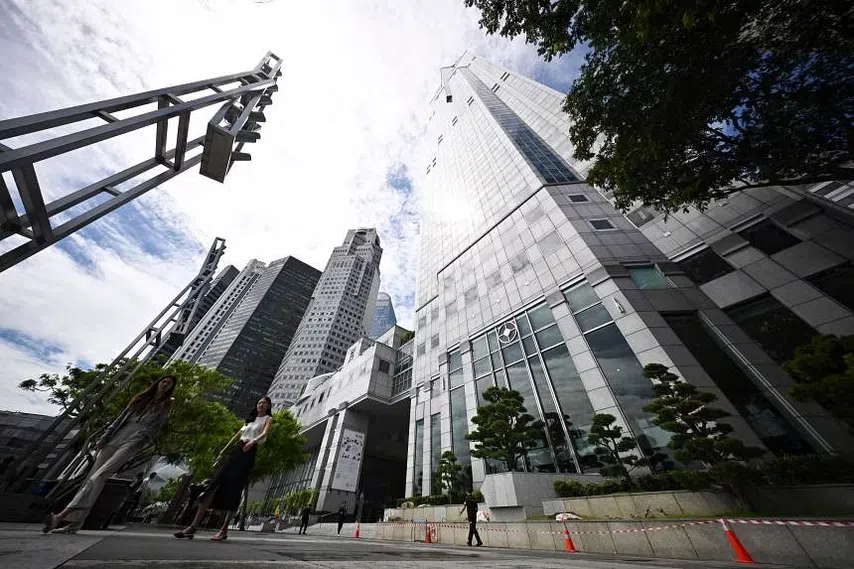Singapore depends on multi-national enterprises for 73% of its corporate tax revenue

(Photo credit: ST)
Source: The Business Times
SINGAPORE is the fourth-most dependent economy in the world that relies on large multinational enterprises (MNEs) for its corporate income tax revenue.
Large MNEs accounted for 73 per cent of Singapore’s total corporate income tax revenue in 2021, according to data from the 2024 edition of the Organisation for Economic Cooperation and Development’s (OECD) Corporate Tax Statistics report.
Ireland was the most dependent economy, with MNEs accounting for 87 per cent of its total corporate income tax revenue in 2021. Hong Kong was second at 79 per cent, and Chile third at 76 per cent.
Many of the MNEs in Singapore are foreign-owned, and this dependency has increased in recent years, the data showed.
Singapore’s statutory corporate income tax rate is 17 per cent, but it offers a range of tax incentives and schemes to encourage specific industries and activities to foster economic growth and innovation. This brings down the effective tax rates companies pay.
The report, released on Jul 11, also contains new data on the effective tax rates available to MNEs on highly mobile intangible assets through intellectual property (IP) regimes and other similar measures.
It showed that for Singapore, the rate under its IP regime to support research and development here was 5 per cent.
OECD’s data showed this rate is low, but common among other jurisdictions, many of which have lower rates.
Singapore could expect that income under these regimes could be subject to top-up taxation under the OECD’s global minimum tax initiative.
In 2021, nearly 140 countries signed the OECD’s global tax deal. The two-pillar agreement aims to stop a practice where companies use tax strategies to exploit gaps in tax rules and shift profits to locations where the tax rates are low or non-existent.
Pillar One targets to reallocate the residual profits of large multinationals from their home countries to places where they generate revenue.
Pillar Two aims to create a consistent tax environment by ensuring multinationals with revenue of at least 750 million euros (S$1.1 billion) pay the minimum effective tax rate of 15 per cent in every country where they operate.
To align with this, Singapore will introduce the Income Inclusion Rule (IIR). This will subject MNEs parented in Singapore to a minimum effective tax rate of 15 per cent on the profits made by their overseas subsidiaries.
Singapore is also proposing to move ahead with the Domestic Top-up Tax (DTT), according to February’s Budget statement. This will apply to the Singapore profits of MNEs operating here.
The IIR and DTT would take effect for a company’s financial year starting on or after Jan 1, 2025, and will apply to MNEs with global revenue of at least 750 million euros annually.
The Ministry of Finance had sought the public’s views on the landmark changes on Jun 10. The public consultation closed on Jul 5.
OECD’s data also showed Singapore’s tax system allows for some amount of accelerated depreciation of assets relative to economic depreciation.
This means the forward-looking effective average tax rate – an indicator of investment incentives – in Singapore is slightly below the statutory tax rate.
Globally, the OECD data continues to point to the existence of companies exploiting gaps in tax rules, though there are some signs of modest reductions in recent years.
Statutory corporate tax rates worldwide are stabilising after a lengthy period of falling rates, according to the OECD report.
Average statutory corporate income tax rates have remained steady at 21.1 per cent over the past three years. This follows a two-decade period that saw them fall from 28 per cent in 2000 to 21.1 per cent in 2021.
The effective average tax rates have continued to decline modestly, from 21.6 per cent in 2017 to 20.2 per cent in 2023.
Anticipation of the new global minimum tax may have contributed to the recent stabilisation, the report said.
More than 35 jurisdictions are implementing, or plan to implement, the 15 per cent minimum corporate effective tax rate with effect from 2024, reducing competitive pressures on statutory corporate income tax rates.
The average effective tax rates including incentives have stayed relatively constant from 2019 to 2023, compared to a decline of almost 13 percentage points from 2000 to 2019, the report said.
